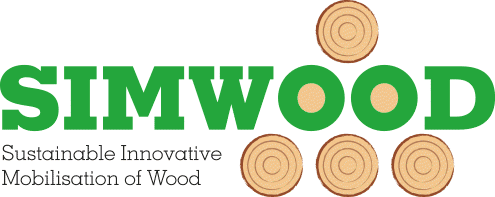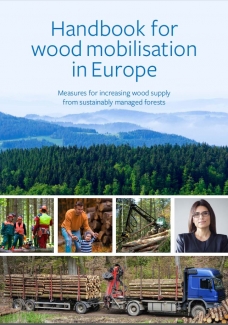SIMWOOD aimed to promote collaborative wood mobilisation in the context of multifunctional forest management across European forest regions. It targeted forest owners and stakeholders to spread integrated, transferable solutions and viable policies that can unlock immobile forest resources, and ensure sustainable forest functions.
Sector forecasts for the coming decades predict a substantial increase in the demand for wood (from solid use, novel chemical uses and most importantly wood energy). Europe's forests have considerable unused potential wood resources. But the main potential is ‘locked’ in private forests. There are 16 million private forest owners in Europe, and increasing fragmentation of holdings (almost two-thirds of European private forest holdings are less than 1 hectare).
The SIMWOOD project had 8 general objectives:
* Understand current and future motivations of forest owners
* Promote forest governance and joint action of stakeholders
* Develop multifunctional forest management adapted to forest types
* Integrate forest ecosystem services while minimizing environmental impacts
* Establish improved adapted forest harvesting techniques
* Demonstrate collaborative regional initiatives and solutions
* Recommend tailor-made instruments to policy makers
* Encourage broad outreach and exploitation in EU regions
The project's main output is the SIMWOOD Information system, a web information service that will provide access to the main results of the SIMWOOD project and much more. The SIMWOOD Information System is a knowledge base which compiles resources for practitioners, policy makers, forest administrations, forest owner associations, and other stakeholders.
Publication:
The Handbook for wood mobilisation in Europe aims to raise awareness of the challenges and opportunities of wood mobilisation from managed forests by increasing the sustainable harvesting of wood. Based on a survey of initiatives and pilot projects in several European countries, the main barriers impeding wood mobilisation are presented along with a set of corresponding measures and interventions that are considered capable of lifting these barriers. It provides a thorough overview of the topic from a European perspective and is aimed at practitioners and policy makers in the forest-based sector. It is also useful as an introduction for readers interested in wood and biomass who have a different background, for example in biochemistry, new materials or renewable energies.
This project received funding from the European Union’s Seventh Framework Programme for research, technological development and demonstration under grant agreement no 613762.
More information at the project website: http://www.simwood-project.eu (last visited 27.7.208)

